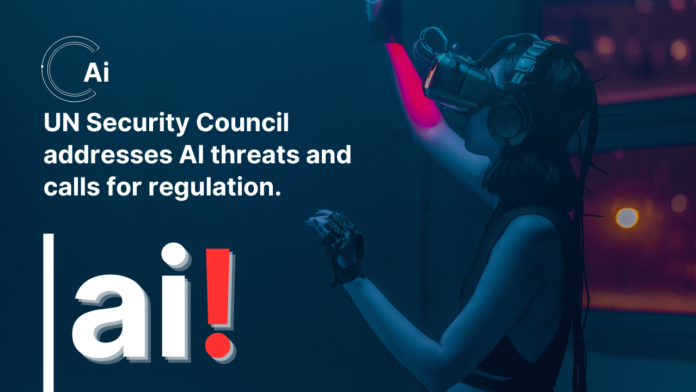Navigating the Risks and Opportunities of Artificial Intelligence
The United Nations Security Council recently held its first-ever session on the threats posed by artificial intelligence (AI) to global peace and stability. This historic meeting reflects the growing recognition of AI’s transformative impact on society and the need to address its potential risks. Secretary-General António Guterres took center stage, emphasizing the urgent necessity for a global watchdog to oversee and regulate this rapidly evolving technology, which has both inspired hope and instilled fear.
The promise of AI is evident across various domains, with the potential to revolutionize industries, improve healthcare, and drive economic growth. It presents unprecedented opportunities for innovation and progress that could shape our future in unimaginable ways. However, the rapid advancements in AI have also raised concerns about its potential misuse. Mr. Guterres warned that this powerful technology could serve as a pathway for criminals, terrorists, and malicious actors seeking to inflict widespread harm on an unimaginable scale.
Of particular concern is the emergence of AI tools like ChatGPT, capable of generating convincing texts, mimicking human voices, and creating multimedia content. While these developments have fueled excitement and possibilities, they have also raised alarm bells about the rise of disinformation and media manipulation. The potential for AI-generated fake news and deepfakes poses significant challenges to global security, as misinformation can sow discord, erode public trust, and manipulate political landscapes.
During the UN Security Council session, diplomats and leading AI experts gathered to discuss the multifaceted nature of AI’s impact on society. It became clear that for every potential benefit, there lies an equal potential for harm. Hence, it is vital to strike a balance between harnessing AI’s power for the greater good and addressing the risks it presents. Building AI technologies without a comprehensive understanding of their consequences is comparable to constructing powerful engines without a full grasp of the science of combustion. It underlines the need for precautionary measures to prevent unintended consequences.
To effectively address these challenges, Secretary-General Guterres proposed the establishment of a global watchdog to oversee AI regulations and monitor its deployment. This proposed agency would consist of AI experts collaborating with governments and administrative agencies worldwide. By providing technical expertise and guidance, the watchdog can help bridge the gap for countries lacking the necessary know-how to navigate the complexities of AI. Such a collaborative approach would promote transparency and accountability, ensuring that AI’s development and application align with ethical standards and respect for human rights.
The role of the private sector in AI regulation is another critical consideration. While technology companies play a central role in AI development, solely relying on them to regulate the technology raises concerns about potential conflicts of interest and biases. Instead, a multi-stakeholder approach involving governments, private enterprises, academia, and civil society is essential to foster trust and confidence in AI systems.
Despite the challenges in establishing a global watchdog and crafting international AI regulations, diplomats at the UN Security Council expressed overwhelming support for the idea. They endorsed the vision of developing a set of international rules and norms to govern AI’s deployment. This collective effort seeks to engage a wide coalition of international actors, ensuring that no country is untouched by AI’s influence. By fostering international collaboration and knowledge sharing, nations can collectively navigate the complexities of AI and develop a safer and more equitable digital landscape.
In conclusion, the UN Security Council’s historic session on the threats posed by AI reflects the global recognition of the profound impact of this transformative technology. The rapid advancements in AI hold immense promise but also carry potential risks and challenges. The call for a global watchdog underscores the urgency to address the ethical, societal, and security implications of AI’s proliferation. Through international cooperation and transparent regulations, the world can embrace the potential of AI while safeguarding against its potential misuse, creating a more inclusive and responsible AI-powered future for all.




